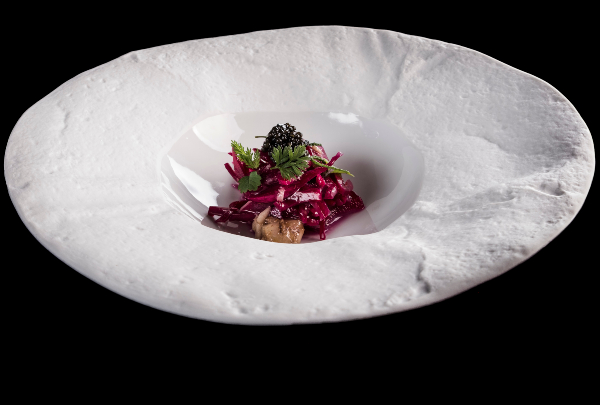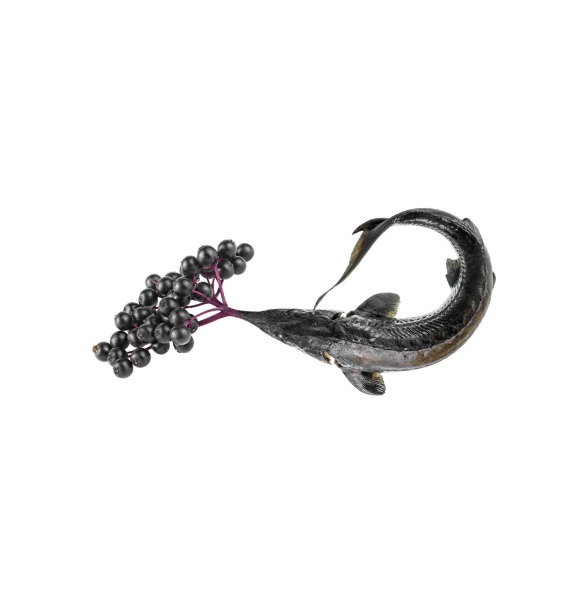Interview
Kaiseki cuisine, eastern philosophy hand in hand with Yoko Hasei
600x405.jpg)
This Japanese chef now settled in Madrid, has revolutionised the capital with the Kaiseki cuisine.
She offers this style of cooking at LeClab (a restaurant located in Casa Gallardo) and will speak about it during her talk at the congress. Hasei will not only reveal the unique aspect of her dishes and the philosophy behind them, but also her culinary links with this country. Japan and Spain are closer that you might think.
Yoko Hasei left her homeland, Japan, to study fashion design in Paris, but shortly after starting an internship with the haute-couture designer Christian Lacroix, she had to return home unexpectedly to take over the family company. ‘In Japan, my father ran a family business importing cattle. I had to leave France when my father fell ill, and I had to take his place. My sisters were still very young and it was my responsibility to keep the family business going,’ she explains.
As the situation improved and she had more free time, she used it to learn more about one of her interests, cooking. Her interest in cooking began when she was a child, rushing around at mealtimes helping her grandmothers. ‘My grandmothers lived very close by and I used to go and see them after school. I loved helping them in the kitchen. In fact, my maternal grandmother was the best cook in town and I learned a lot from her. When she made a dish – for example, the dough for buns – she, like everyone else, didn’t use measuring cups or talk about quantities when it came to ingredients, it was all done by eye. And that’s how I learned.’ Back then, professional cooking schools were just for men, so she studied at non-professional ones (attended mainly by young women whose fate was to get married and become home-makers, as was the tradition of the day), read books and watched cooking shows on TV. ‘I also cooked a lot for my parents and friends. In fact, they encouraged me to open a restaurant, but I wasn’t too keen on the idea at the time,’ she says.
An interest in the tailoring of bullfighting suits – hailing from her background in fashion – is why, on one of her many trips around the world, she came to Spain to learn more about this tradition. ‘I’ve always loved travelling, so twice a year I’d travel for almost a month in Europe and another month in Asia. I’d never been to Spain and my first trip was in 2003. I became very interested in bullfighting suits and bullfighting. From then on, I’d return every year in May for the San Isidro celebrations in Madrid. I’d stay for a whole month, learning Spanish in the mornings and going to bullfights in the afternoons.’
In 2010 she decided to settle in Spain. ‘At that time, I travelled around Spain a lot to get to know its gastronomy, which really interested me. I started as a student but I wanted to do more than just study. Thanks to my training, I realised that the easiest way to enter the job market was via the restaurant industry, so I opened a cocktail bar near where I lived. This was in 2012-2013, at the time when drinking gin and tonic became very hip. Japan also had a strong cocktail culture and it was there that I learned how to be a bartender.’ But her first foray into the industry didn’t have a happy ending. ‘I didn’t really understand how Spain worked and, in particular, the location was wrong. At the time, I thought that as the bar was close to home and in a good area it would be more convenient for me, but then I realised that a better area to open an establishment like that would have been in the centre of town. In Madrid, it’s easy to get to the city centre and it’s only about 15 minutes away by car from anywhere.’ She sold the business, got a job managing a Japanese restaurant and has worked in the restaurant sector ever since.
She started working at LeClab last December, in the middle of the pandemic. ‘At the end of July I was on furlough. I was managing a Japanese restaurant but, in the end, the owner decided to change the concept behind the restaurant and so I was out of a job.’ A few days later, one of the restaurant’s regulars phoned her to see if she could organise a dinner for friends at home. Her food was such a hit that she decided to think about catering private events professionally. She was in the process of doing just that when Luisa Orlando, general manager of LeClab, offered her the chance to take over the restaurant’s gastronomic side. We know what her answer was.
Yoko Hasei’s food is based on Kaiseki cuisine, of which she clarifies there are two kinds. The confusion stems from the fact that, although they are spelled differently in Japanese, the pronunciation is the same. For her, the most interesting of the two is the one dating back to the 16th century, to the matcha tea ceremony. Yoko explains that it is a style of cooking linked to the principle of hospitality, and involves a series of light, delicate, balanced dishes that counterbalance the robust flavour of matcha tea. It is completely different from the other kind of Kaiseki cuisine, which dates from the 18th century and is associated with banquets, having a good time with friends and drinking sake.
The philosophy of her cuisine contrasts with that of a tasting menu. ‘A tasting menu has many dishes, there’s a lot of food. In fact, if I have had that kind of meal for lunch, I don’t eat dinner. Even for some time afterwards, I tend to eat less. However, the Kaiseki dishes I prepare are based on a very delicate and authentic Japanese way of cooking, where the important thing is to use seasonal, local produce. Fortunately, in Spain you can find very good raw materials to cook with.’ Although she usually works with Spanish produce, certain ingredients are imported from Japan – such as those needed to prepare dashi stock that calls for dried bonito – but the pandemic has made it harder to get these through customs. So, for the time being, all ingredients used at LeClab are from this country.
In addition to cooking, Yoko is also a qualified sake sommelier. ‘Before entering this sector, I thought that sake was a strong drink, drunk by men, but after becoming well-versed in it, I discovered a new world.’
For anyone wanting an in-depth understanding of Kaiseki cuisine a good opportunity to do so will be to attend Yoko’s talk at Madrid Fusión, where she will also discuss her recent discoveries. ‘It’s very interesting because many of the dishes in 18th-century Kaiseki cuisine were inspired by Spanish recipes. Just the other day, while I was doing some history research to prepare a topic, I read that in the 16th century one of Japan’s trading partners was Portugal, which at that time belonged to Spain, and that many of our dishes have roots in Castile. One of them, for example, is a recipe for escabeche and another is for croquettes. Although the way they are prepared is different, the basic idea is quite similar. In Spain, croquettes are made with béchamel sauce, but in Japan, as cow’s milk was uncommon until after the Second World War, mashed potato is used instead of a béchamel sauce.’
Her talk promises to be fascinating.

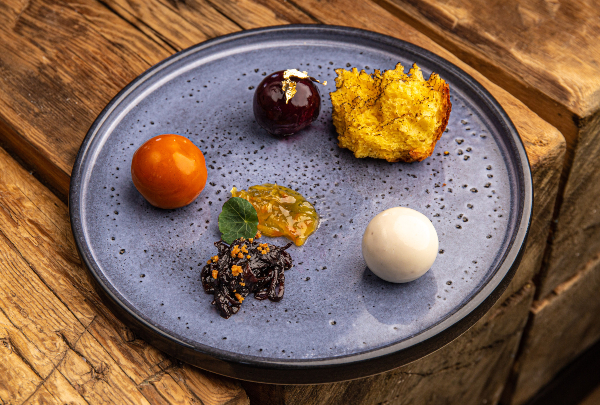
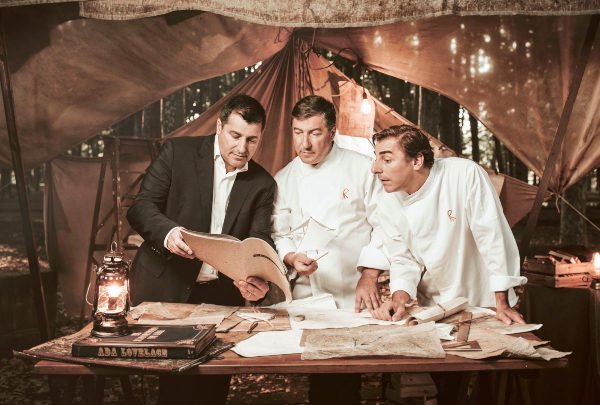
 600x405.jpg)

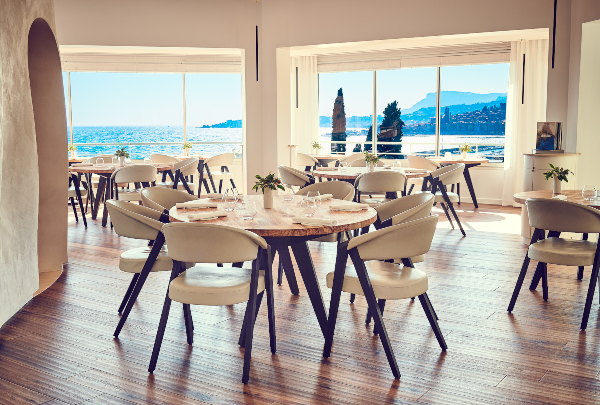
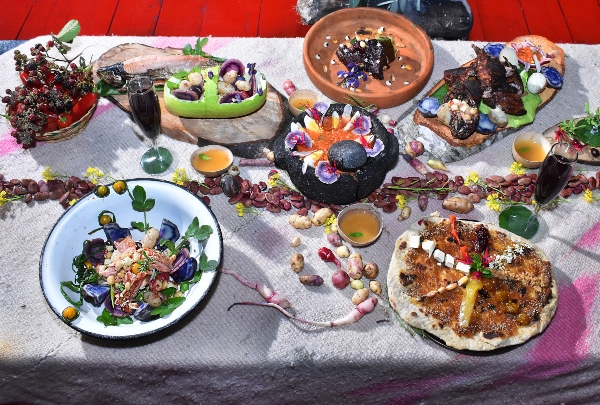
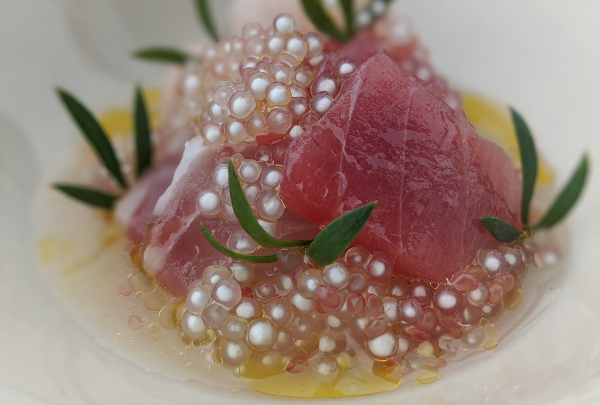
.jpg)
.jpg)
